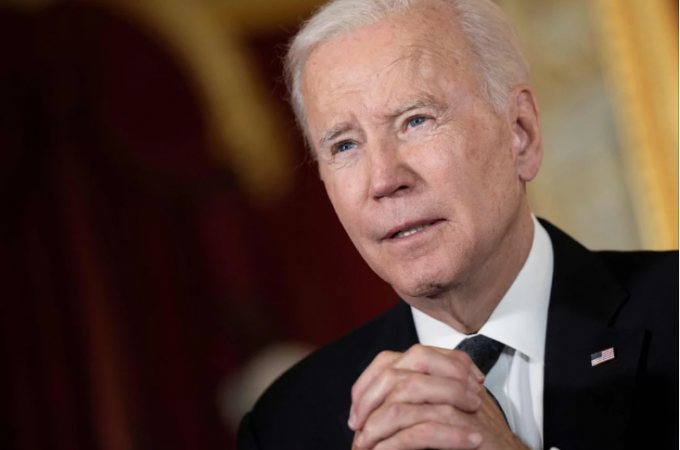
United States: In his most direct statement ever on the subject, US Vice President Joe Biden said US troops would defend Taiwan if Beijing invades the island.
Biden was questioned about whether the US would defend the island in a 60 Minutes interview that aired on Sunday. Yes, if there was an unprecedented attack, he replied.
Asked if this meant "the US military, American men and women" would defend Taiwan in the event of an attack from Beijing, he also answered "yes".
According to the Taiwan Relations Act of 1979, which governs US relations with Taiwan, Washington is obliged to guarantee that the autonomous island has the means to defend itself and prevent Beijing from unilaterally changing Taiwan's status. Huh. Huh. However, it is not obligatory that the US should militarily defend the independent island.
In the past, Washington has been uncertain about how the country would react if Beijing attacked the island. Strategic obscurity enables Washington to maintain its relationship with Beijing and prevent island attacks.
After a civil war on the mainland, China and Taiwan split in 1949 when the nationalist Kuomintang was overthrown by Communist Party forces and fled to Taipei.
Beijing considers the island to be part of China and has never banned the use of force. Most countries, including the US, do not recognize Taiwan as an independent nation. However, Washington opposes any attempt to capture the island by force.
When asked by a reporter whether the US was prepared to intervene militarily to protect Taiwan during a visit to Japan in May, Biden replied in the affirmative. Yes, he said, "That's the commitment we made.
He said Chinese President Xi Jinping should be aware that "we agree on what we signed long ago" in the 60-minute interview.
Additionally, he claimed that the US had a "one-China" policy and "did not encourage their independence." He said Taiwan should decide whether to become independent or not.
White House officials told the news program that there was no change in US policy on Taiwan. The White House also clarified when Biden made his remarks in Tokyo in May that the US president's remarks do not indicate a change in policy.
Since the comments in May, relations between Washington and Beijing have become strained.
US House Speaker Nancy Pelosi angered Beijing by visiting Taiwan in early August. The People's Liberation Army (PLA) continued to send warplanes across the Taiwan Strait, a de facto border that Taiwan and the mainland had largely adhered to for decades, and conducted unprecedented live-fire military exercises around the island, resulting in There was a semi-blockade.
Pelosi's visit was, according to Beijing, an attempt by a senior US official to challenge Chinese sovereignty. Through the Group of 7, the US insisted that international travel by lawmakers was normal and that the PLA's actions were "destabilizing" and could lead to "unnecessary escalation".
Armenia increases police presence before Pelosi's visit capital
Li Zhanshu China's No. 3 leader will go to Russia
Strong earthquake in Taiwan traps people and causes a train to derail